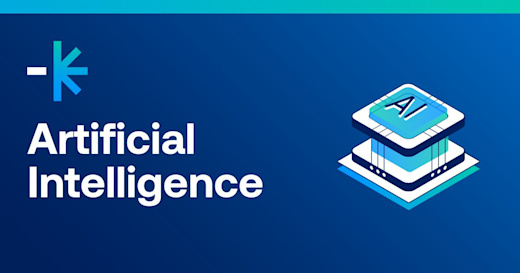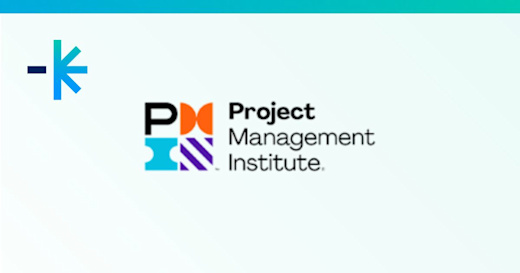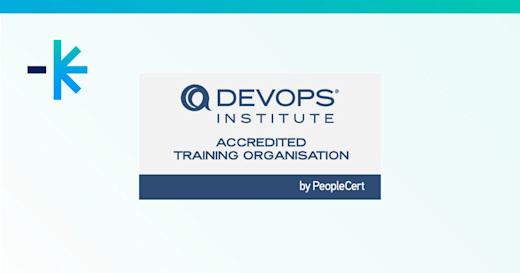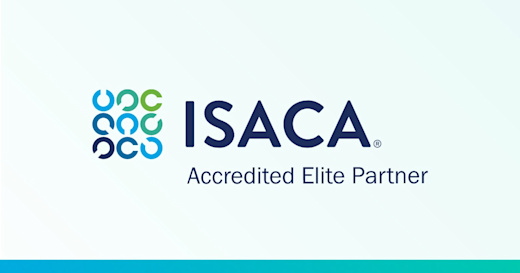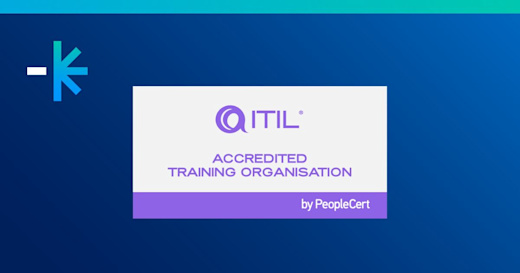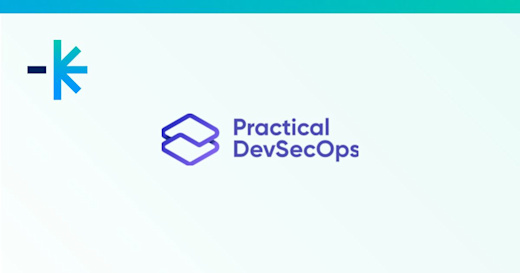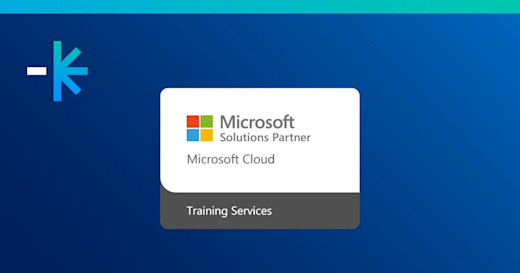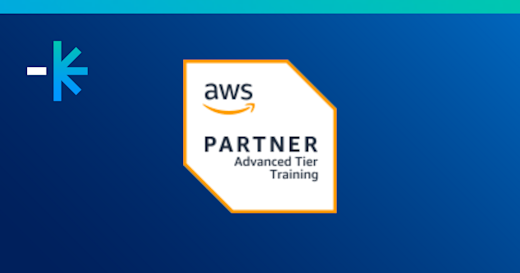Many organisations claim to “do” DevOps. They DON’T!
The truth is that teams cannot do DevOps because it is not a single task or job. It's a set of practices and a cultural philosophy that aims to improve collaboration and communication between software development (Dev) and IT operations (Ops) teams.
Instead of "doing" DevOps, organisations adopt DevOps.
They implement its principles and use its tools to automate processes, streamline workflows, and ultimately deliver software faster and more reliably.
And as adoption rates grow, the demand for staff with DevOps education and certification grows. According to SPDLoad, over 80% of organisations practice DevOps, and this is expected to rise to 94% by 2026.
Security integration is increasing, too. By 2025, 75% of DevOps initiatives will include integrated security practices (DevSecOps), up from 40% in 2023. Bonus: Learn more about DevSecOps here.
In addition, enterprises need to restructure to embrace DevOps fully. Currently, most DevOps teams consist of up to 12 members, reflecting agile, cross-functional collaboration.
Let's clarify some common misconceptions, examine DevOps implementation strategies that you and your team can apply, and explore available DevOps training options.
What are the major misconceptions of DevOps?
Several common misconceptions about DevOps often lead to failed implementations. DevOps is not a single tool, a specific job title, or simply about automation. It's a fundamental change to how an organisation works. Some of the misconceptions:
Misconception 1: It's a Tool or a Set of Tools
One of the most widespread misconceptions is that you can "buy DevOps." While many great tools enable DevOps practices (like Jenkins, Docker, and Kubernetes), they don't create a DevOps culture on their own. DevOps is a philosophy and a set of practices, with tools serving as the enablers, not the solution. Simply implementing a CI/CD pipeline without a cultural shift will only automate an inefficient, broken process; it won't fix it.
Misconception 2: It's a Job Title
Many companies create a "DevOps Engineer" role, leading to the false belief that one person or team is solely responsible for DevOps. The core idea of DevOps is to break down silos between development and operations teams, making them a collaborative, cross-functional unit.
Assigning a single person the title of "DevOps" can inadvertently create a new silo, defeating the entire purpose of the initiative. A true DevOps culture means everyone—developers, operations, QA, and security—shares responsibility for the entire product lifecycle.
Misconception 3: It's Just Automation
Whilst automation is a key pillar of DevOps, it's not the whole story. DevOps is built on five core values (CALMS):
Culture
Automation
Lean (waste reduction)
Measurement
Sharing
Focusing only on automation misses the most critical element: culture. Automation is a powerful tool for accelerating the software delivery process, but without a culture of collaboration, shared responsibility, and continuous learning, the benefits will be limited, and the underlying problems will persist.
Misconception 4: It's the Same as Agile
While DevOps and Agile share common ground—such as a focus on continuous improvement and rapid delivery—they are not the same.
Agile is a software development methodology that focuses on how teams build software, emphasising collaboration and iterative work.
DevOps extends this philosophy by bridging the gap between development and operations, ensuring that the software can be reliably and efficiently delivered and maintained in a production environment.
You can be an Agile team without practising DevOps. Still, DevOps is often considered the next logical step after implementing Agile, providing a way to deliver on the promises of rapid development.
As a side note: Others also confuse DevOps with SRE. These two can be understood as meaning “a commitment to improving both software delivery and operational efficiency”. Both approaches arose in response to the increasing complexity of contemporary IT systems. Learn about the key differences between SRE vs. DevOps Certifications.
So, how do you implement DevOps?
Implementing DevOps in a traditional IT organisation requires a strategic, phased approach that addresses cultural, process, and technological shifts. The key is to move away from siloed teams and manual, sequential processes toward a culture of collaboration, automation, and continuous improvement.
Listed below are some basic strategies for implementing DevOps in more traditional IT organisations.
Recommendation 1: Gain Leadership Buy-In and Assess the Current State
Secure buy-in: First, you need top-down support from leadership. This isn't just a technical change; it's a fundamental cultural one. Highlight the business benefits of faster delivery, increased reliability, and improved collaboration.
Conduct an assessment: Analyse your existing workflows, identify bottlenecks, and understand the current skills of your teams. Find specific "pain points" such as lengthy deployment times, high failure rates, or inadequate communication between development and operations. This step will help you define clear, measurable goals for your DevOps initiative.
Recommendation 2: Start Small with a Pilot Project
Instead of a big-bang approach, choose a single, non-critical project to serve as a pilot. Selecting a pilot project allows you to test the new processes and tools without risking a major system.
Form a cross-functional team for this project, including developers, operations engineers, QA, and security. This team will work together from start to finish.
Recommendation 3: Break Down Silos and Foster a New Culture
Cultural shift: This is the most crucial part. DevOps is a philosophy before it's a set of tools. You need to foster a culture of shared responsibility and empathy. Encourage developers to think about how their code will run in production and operations to be involved in the design phase.
Shared goals: Align the incentives of development and operations teams. Instead of separate metrics like "number of features shipped" for dev and "uptime" for ops, introduce shared goals like Mean Time to Recovery (MTTR) or deployment frequency.
Recommendation 4: Implement Key Practices and Automation
Continuous Integration (CI): Implement a system where developers merge code changes into a central repository frequently. CI triggers an automated build and test process to catch integration issues early.
Continuous Delivery (CD): Automate the process of building, testing, and preparing code for release. CD ensures that the software is always in a deployable state.
Infrastructure as Code (IaC): Manage and provision your infrastructure (servers, networks, databases) using code instead of manual processes. IaC makes environments repeatable, consistent, and scalable.
Automated Testing: Shift testing "left" by integrating automated tests (unit, integration, and security tests) into the CI/CD pipeline so that you can spot or surface issues as early as possible.
Continuous Monitoring: Implement tools to collect and analyse data on application and infrastructure performance in real-time. Monitoring provides immediate feedback, helping teams proactively identify and resolve issues.
The need for structure, culture and DevOps training
To implement DevOps, skill and structure your team accordingly. Doing Devops is not a one-off task accomplished by one person. It requires you to assemble a team, understand the philosophy through DevOps training and adopt that when collaborating with other teams.
Lumify Work is proud to be ANZ's only Platinum Partner of PeopleCert, owners of the DevOps Institute (DOI). We are an Accredited Training Organisation for PeopleCert's DevOps courses and certifications. Courses are also available in the Philippines.
The DevOps Institute is a global learning community empowering people who power IT. Their goal is to help you develop both the professional and personal expertise to make the most of DevOps in both your business and your career.
Consider enterprise-level DevOps training courses and certifications such as DevOps Foundation (DOFD), DevOps Leader (DOL), and DevSecOps Foundation (DSOF).


